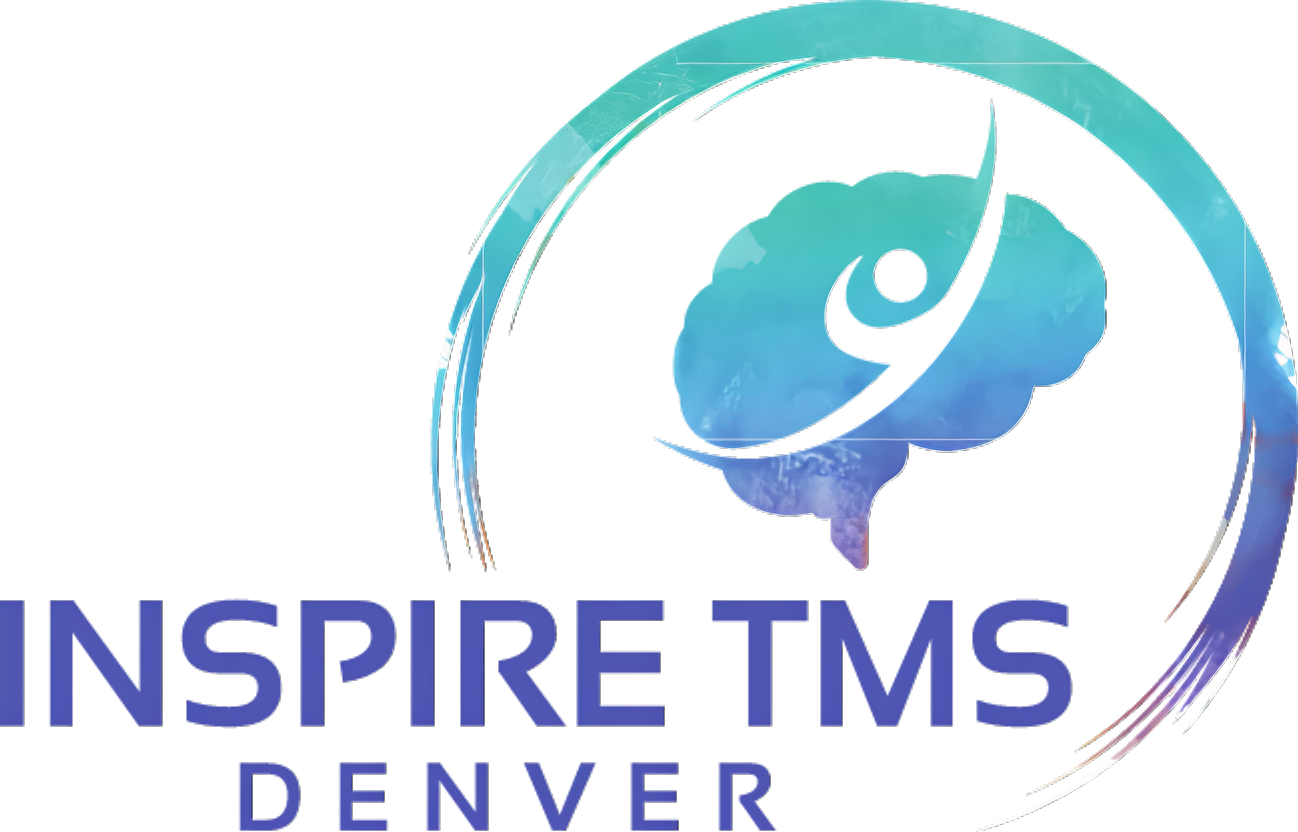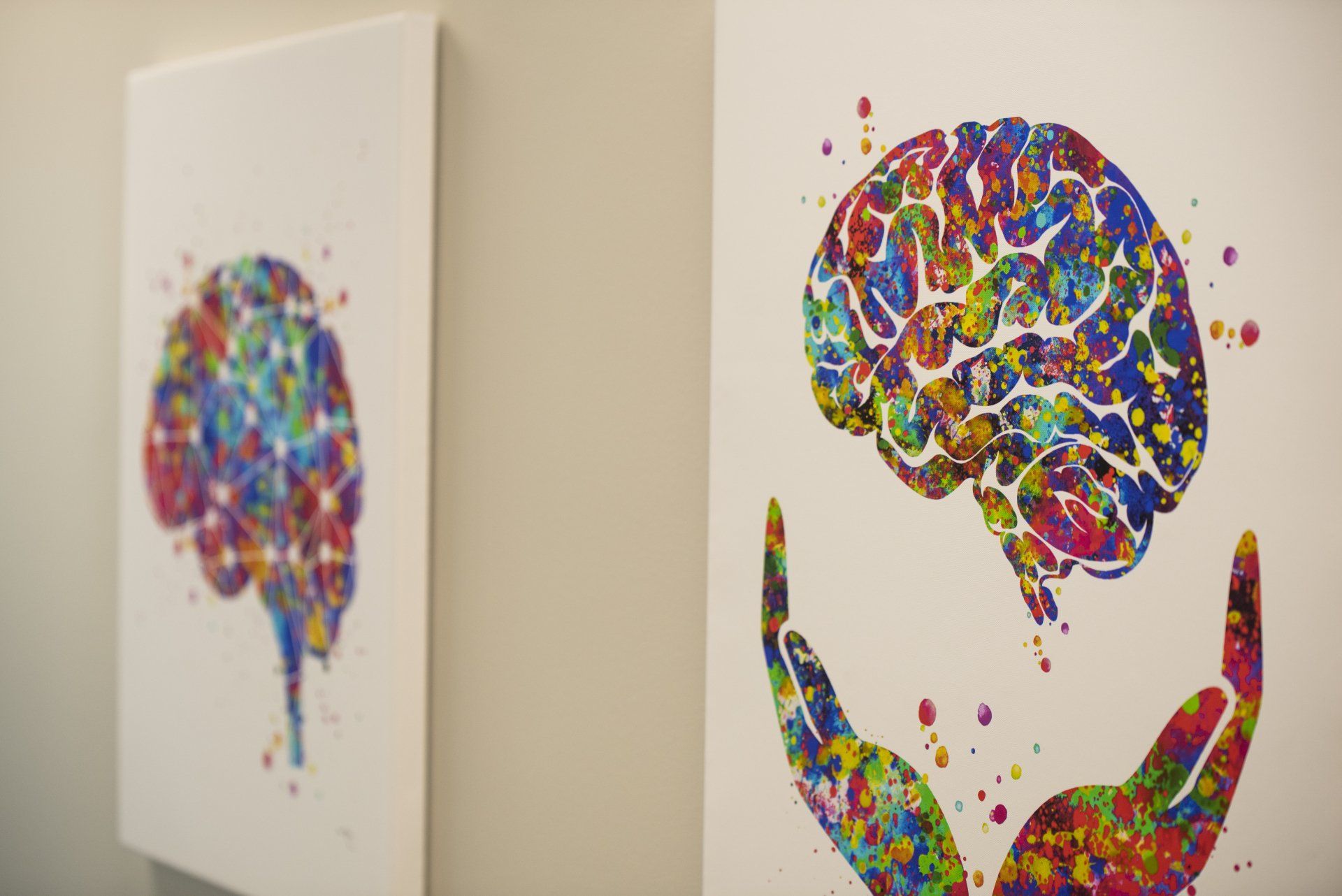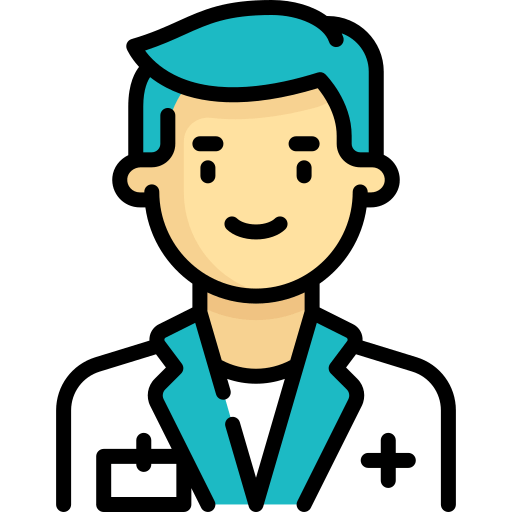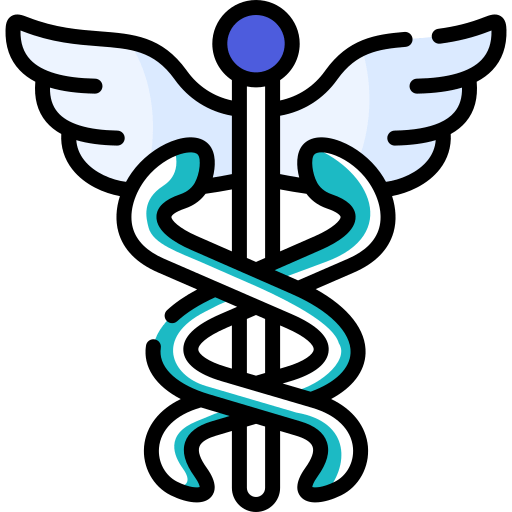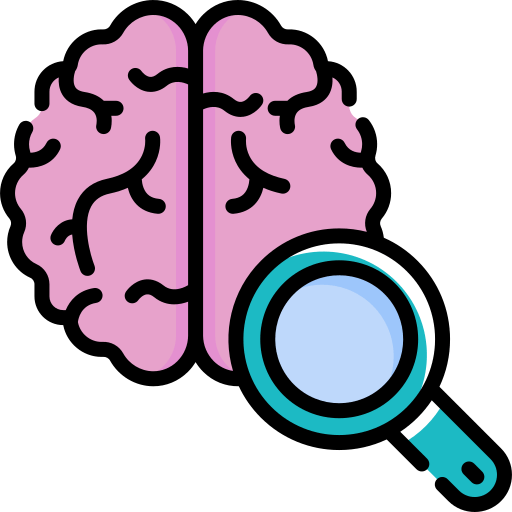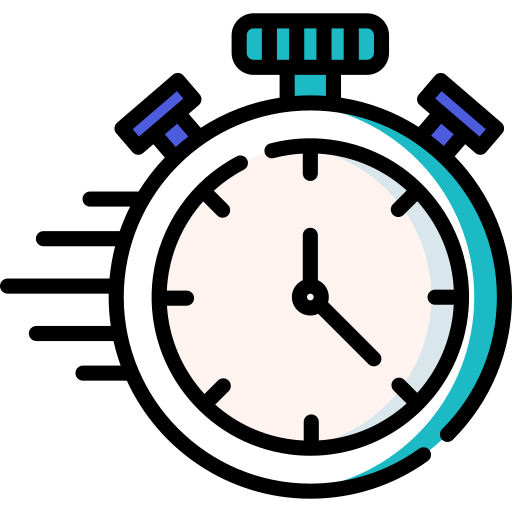LOCATION
340 East 1st Avenue, Suite 333 Broomfield, CO 80020
PHONE
720-446-8675
BUSINESS HOURS
- Mon - Fri
- -
- Sat - Sun
- Closed
Response Rates
10,000+ Treatments Completed
TMS Therapy for Bipolar Disorder
Almost 3% of the US population suffer with Bipolar Disorder. Bipolar is often identified due to manic symptoms, but depression still regularly occurs and can be just as dysfunctional. Research is currently underway to see how TMS might help in Bipolar Depression.
Want to know more about TMS? Check out this in-depth guide to TMS therapy with transparent and easy to understand explanations about TMS processes, protocols, and treated conditions.
TMS Therapy for Bipolar Disorder
Almost 3% of the US population suffer with Bipolar Disorder. Bipolar is often identified due to manic symptoms, but depression still regularly occurs and can be just as dysfunctional. Research is currently underway to see how TMS might help in Bipolar Depression.
Want to know more about TMS? Check out this in-depth guide to TMS therapy with transparent and easy to understand explanations about TMS processes, protocols, and treated conditions.

Almost 3% of the US population suffer with Bipolar Disorder. Bipolar is often identified due to manic symptoms, but depression still regularly occurs and can be just as dysfunctional. Research is currently underway to see how TMS might help in Bipolar Depression.
TMS Therapy For Bipolar Disorder
Want to know more about TMS? Check out this in-depth guide to TMS therapy with transparent and easy to understand explanations about TMS processes, protocols, and treated conditions.
What is Bipolar Disorder?
The prefix ‘Bi’ indicates two and Bipolar Disorder exhibits two forms of mood in extreme or ‘polar’ opposites. Patients with Bipolar Disorder typically suffer from cycles of depression and mania:
Depression often presents with classic symptoms of despair or low mood and apathy. Individuals with
Bipolar depression also tend to oversleep and overeat and generally have problems initiating activities.
Classic Depressive Disorders are clinically described as ‘unipolar depression’. Bipolar Disorder, historically called Manic Depression, typically triggers cycles of both depression and mania. The depressive episodes are often no different than depression that occurs in unipolar depression, however. These episodes can last for days to weeks or even months, often with intervals of ‘normal’ stabilized mood in between. One cycle may present more frequently than the other, e.g. more frequent problems with depression than mania.
Read more: TMS for Postpartum
More intense episodes of mania are usually diagnosed as Bipolar 1 while less intense episodes (“hypomania”) are diagnosed as Bipolar II. Cyclothymia is a milder form of mood swings.
In This Guide
Symptoms of Bipolar Disorder
Depression
Mania
Is Bipolar Disorder common?
Globally, there were 46,000,000 estimated cases of Bipolar Disorder in 2017 with a marginally higher prevalence in women vs men. This comes out to just over 1% of the population, with larger rates reported in areas of higher mental health services such as the United States (e.g. 2-3% in the US). When considering Bipolar II and Cyclothymia, the prevalence is even higher. The average age of presentation is 25 years, but can present prior to this or later in life.¹
Causes of Bipolar Disorder
The exact cause of Bipolar is unknown but expert opinion points to a variety of genetic, environmental, and social factors that increase vulnerability to developing the condition.
Bipolar Disorder treatment
Drug treatment is the mainstay of treatment for Bipolar Disorder and can often be effective once finding the right medication for the individual. Similar to clinical depression, coping strategies, healthy lifestyle decisions, and structure and support also help regulate moods. Mania in particular will often respond well to “mood-stabilizing” medication. Unfortunately, similar to unipolar depression, the depressed phases of Bipolar can often be medication resistant. And the number of FDA approved medications for Bipolar depression is actually quite limited. Many off-label strategies are hence utilized. The medications needed to effectively treat Bipolar mania or depression often also have even more side effects than typical antidepressants, which can lead to stopping treatment.
TMS treatment and Bipolar Depression
Although rTMS-repetitive Transcranial Magnetic Stimulation for Bipolar disorder is not currently cleared by the FDA, a number of studies to date have indicated efficacy in acute bipolar depression and accordingly, the FDA initiated a Breakthrough Device Designation in 2020 to evaluate TMS therapy for Bipolar depression. ¹²³⁴⁵⁶ As the therapy is not currently FDA approved, it is not typically covered by insurance. Out of pocket treatment may be an option that some choose to pursue, however, due to prolonged Bipolar depression and lack of response to standard treatments.
Read More: TMS therapy cost →
Before considering TMS for Bipolar depression, it is also crucial to ensure accurate diagnosis. Some patients may have been diagnosed with Bipolar at some point in their treatment, but the diagnosis may not be entirely clear. Repeat consultation and review of records may argue against the diagnosis and properly identify unipolar Major Depression as the accurate diagnosis. And sometimes an argument can be made to insurance to pursue TMS for Bipolar depression due to previous benefit from TMS treatment or medical necessity secondary to ineffectiveness or intolerance to alternative treatments.
Similar to studies involving unipolar treatment resistant depression, TMS therapy for Bipolar depression has been shown to be well-tolerated and safe. There is some limited evidence that the procedure can potentially precipitate mania in a small number of patients, so this must be monitored closely if pursuing TMS treatment.
Read More: TMS for PTSD →
Individualized TMS
Depending on the diagnoses present for a particular individual, variations to treatment protocols may be implemented and treatment may also be adapted according to an individual’s response. Should you elect to pursue TMS therapy, rest assured that Inspire TMS Denver will tailor treatment protocols to your individual symptoms and situation. We promise to keep you informed and comfortable with your individual care plan. More questions about TMS therapy and Bipolar Disorder? Please contact us to see about a free consultation.
Featured Reviews
-

“We have been working together for a few years now. He is always sensitive to my current condition and always trying to get me the most effective solutions with the least amount of side affects.”
- Andre D.
MashIt 
"I feel like he cares about what's going on with me. Took time to listen and helped with my concerns about a medication that I've been on that seems to be causing more weight gain and trouble with weight loss."
FabuFit
“Dr. Clinch is very professional, kind and courteous. I never feel rushed with any of my appointments with him. Dr. Clinch listened to my concerns and gave great feedback. The phone appointment was very convenient!”
YesSuits
Free Consultation
What Happens After I Send My Message?
- A member of our team will confirm your free consultation appointment within one business day.
- Discover if TMS is right for you and answer all your queries about treatment, eligibility and costs.
Contact Us
We will get back to you as soon as possible.
Please try again later.


Slide title
Write your caption hereButton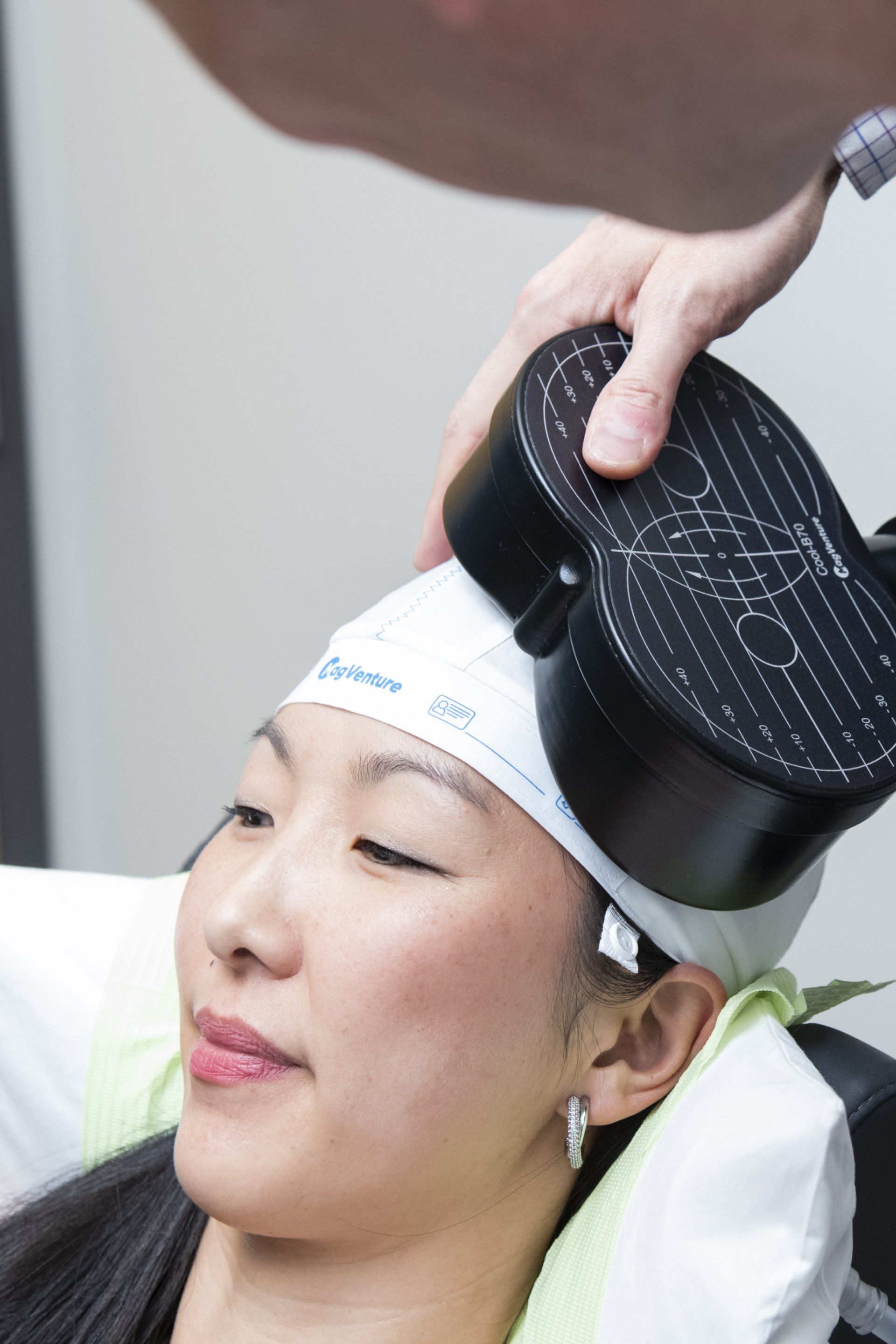
Slide title
Write your caption hereButton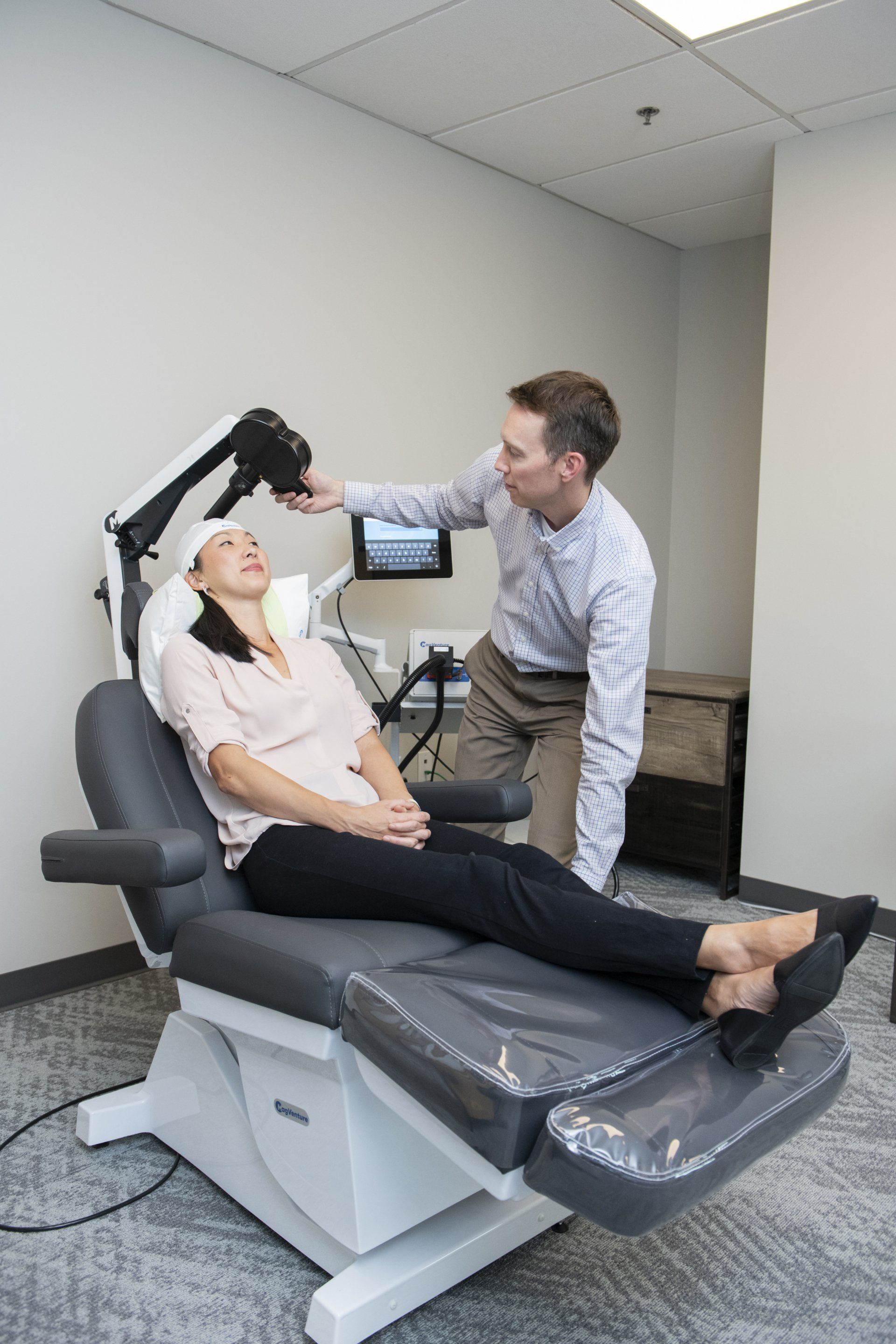
Slide title
Write your caption hereButton
What Makes Us Different
Free TMS Therapy Guides, Quizzes & Phone Consultations

Patient Testimonials
Previous Patients Putting Your Mind At Rest

We have been working together for a few years now. He is always sensitive to my current condition and always trying to get me the most effective solutions with the least amount of side affects.
I feel like he cares about what's going on with me. Took time to listen and helped with my concerns about a medication that I've been on that seems to be causing more weight gain and trouble with weight loss.
the tms journey
A Step By Step Process

Book your free telephone consultation with Dr. Clinch and use this time to ask any questions or voice any concerns about TMS. If there are no contraindications to treatment, you are a good candidate, and you wish to proceed with a full evaluation, we will schedule a full intake. You will be sent an invite to our confidential patient portal and forms for review and completion that expedite care.
Shortly after this, you will be seen in person for the full TMS evaluation. This will provide adequate information for us to then submit prior authorization for TMS coverage to your insurer. If seeking care off-label through self-pay, prior authorization is not needed. We then schedule your first and all subsequent treatment sessions. We obtain prior authorization and inform you of all costs prior to starting care.
Come in for your first treatment which starts with a 'mapping' to establish your unique treatment intensity and location. Following this and at all subsequent sessions, you will recline in a motorized chair, similar to a dental visit. You can then relax, listen to music, watch TV, read or chat during the treatment. At the end of your sessions, you can drive and return to your day as normal.
Samuel B. Clinch, M.D
Medical Director
Our shared inspiration is to alleviate mental illness and improve the mental wellbeing of the patients we treat. We respect all backgrounds and cultures and want to hear our patient’s stories to best guide care. During treatment, we reinforce positive wellness practices, help maximize lifestyle modifications, and integrate rTMS therapy into a patient’s overall mental and physical health treatment.
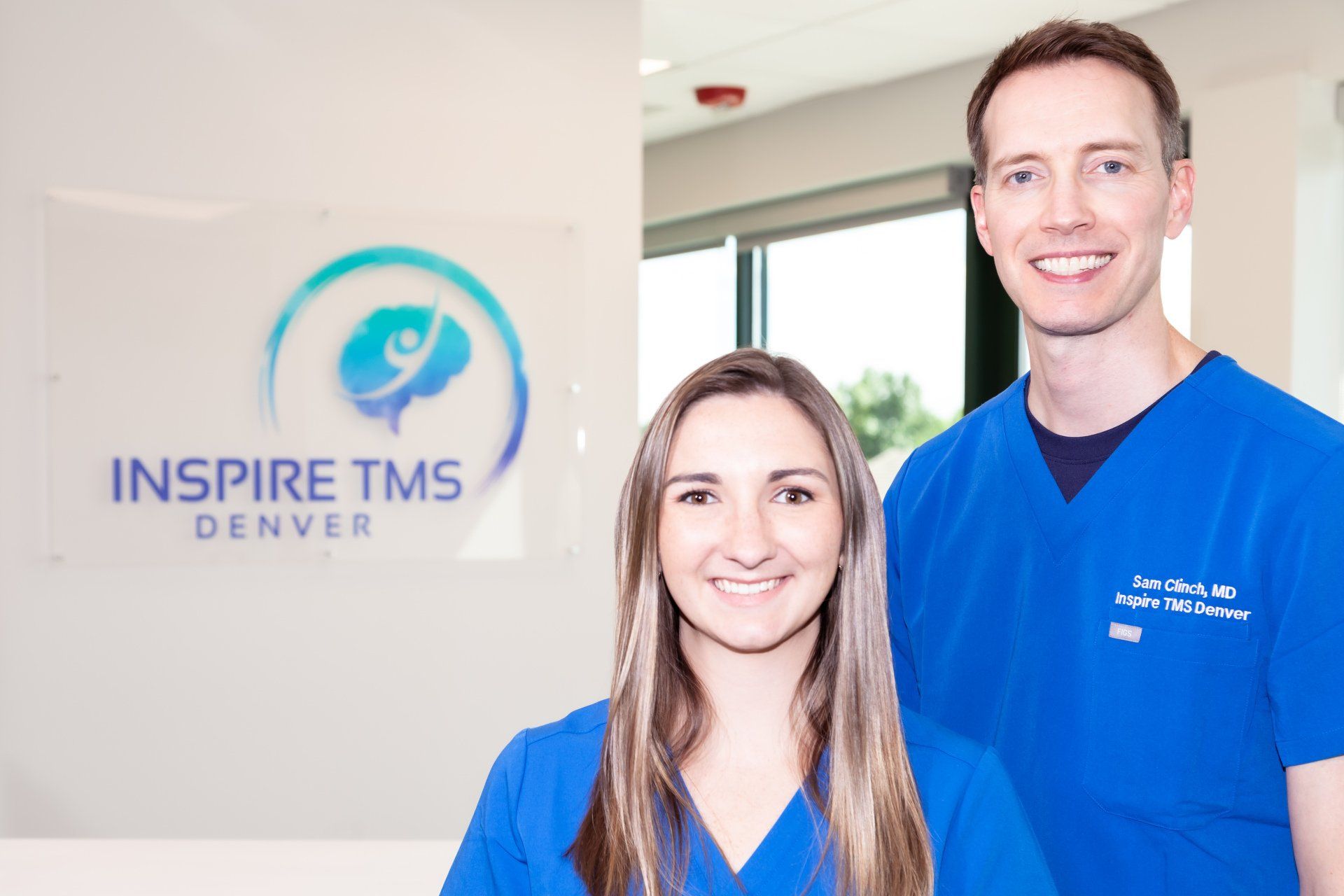

Free Consultation
Call 720-446-8675 now, or complete the form below to request a call back.
Contact Us
We will get back to you as soon as possible.
Please try again later.
Contact Us
LOCATION
340 East 1st Avenue, Suite 333
Broomfield, CO 80020
What Happens After I Send My Message?
A member of our team will confirm your free consultation appointment within one business day.
Discover if TMS is right for you and answer all your queries about treatment, eligibility and costs.
Take the First Step Towards Your Mental Well-being Today
What is Bipolar Disorder?
The prefix ‘Bi’ indicates two and Bipolar Disorder exhibits two forms of mood in extreme or ‘polar’ opposites. Patients with Bipolar Disorder typically suffer from cycles of depression and mania:
Depression often presents with classic symptoms of despair or low mood and apathy. Individuals with
Bipolar depression also tend to oversleep and overeat and generally have problems initiating activities.
Classic Depressive Disorders are clinically described as ‘unipolar depression’. Bipolar Disorder, historically called Manic Depression, typically triggers cycles of both depression and mania. The depressive episodes are often no different than depression that occurs in unipolar depression, however. These episodes can last for days to weeks or even months, often with intervals of ‘normal’ stabilized mood in between. One cycle may present more frequently than the other, e.g. more frequent problems with depression than mania.
Read more: TMS for Postpartum depression →
More intense episodes of mania are usually diagnosed as Bipolar 1 while less intense episodes (“hypomania”) are diagnosed as Bipolar II. Cyclothymia is a milder form of mood swings.
Symptoms of Bipolar Disorder
Depression
Mania
Is Bipolar Disorder common?
Globally, there were 46,000,000 estimated cases of Bipolar Disorder in 2017 with a marginally higher prevalence in women vs men. This comes out to just over 1% of the population, with larger rates reported in areas of higher mental health services such as the United States (e.g. 2-3% in the US). When considering Bipolar II and Cyclothymia, the prevalence is even higher. The average age of presentation is 25 years, but can present prior to this or later in life.¹
Causes of Bipolar Disorder
The exact cause of Bipolar is unknown but expert opinion points to a variety of genetic, environmental, and social factors that increase vulnerability to developing the condition.
Bipolar Disorder treatment
Drug treatment is the mainstay of treatment for Bipolar Disorder and can often be effective once finding the right medication for the individual. Similar to clinical depression, coping strategies, healthy lifestyle decisions, and structure and support also help regulate moods. Mania in particular will often respond well to “mood-stabilizing” medication. Unfortunately, similar to unipolar depression, the depressed phases of Bipolar can often be medication resistant. And the number of FDA approved medications for Bipolar depression is actually quite limited. Many off-label strategies are hence utilized. The medications needed to effectively treat Bipolar mania or depression often also have even more side effects than typical antidepressants, which can lead to stopping treatment.
TMS treatment and Bipolar Depression
Although rTMS-repetitive Transcranial Magnetic Stimulation for Bipolar disorder is not currently cleared by the FDA, a number of studies to date have indicated efficacy in acute bipolar depression and accordingly, the FDA initiated a Breakthrough Device Designation in 2020 to evaluate TMS therapy for Bipolar depression. ¹²³⁴⁵⁶ As the therapy is not currently FDA approved, it is not typically covered by insurance. Out of pocket treatment may be an option that some choose to pursue, however, due to prolonged Bipolar depression and lack of response to standard treatments.
Read More: TMS therapy cost →
Before considering TMS for Bipolar depression, it is also crucial to ensure accurate diagnosis. Some patients may have been diagnosed with Bipolar at some point in their treatment, but the diagnosis may not be entirely clear. Repeat consultation and review of records may argue against the diagnosis and properly identify unipolar Major Depression as the accurate diagnosis. And sometimes an argument can be made to insurance to pursue TMS for Bipolar depression due to previous benefit from TMS treatment or medical necessity secondary to ineffectiveness or intolerance to alternative treatments.
Similar to studies involving unipolar treatment resistant depression, TMS therapy for Bipolar depression has been shown to be well-tolerated and safe. There is some limited evidence that the procedure can potentially precipitate mania in a small number of patients, so this must be monitored closely if pursuing TMS treatment.
Read More: TMS for PTSD →
Individualized TMS
Depending on the diagnoses present for a particular individual, variations to treatment protocols may be implemented and treatment may also be adapted according to an individual’s response. Should you elect to pursue TMS therapy, rest assured that Inspire TMS Denver will tailor treatment protocols to your individual symptoms and situation. We promise to keep you informed and comfortable with your individual care plan. More questions about TMS therapy and Bipolar Disorder? Please contact us to see about a free consultation.


Slide title
Write your caption hereButton
Slide title
Write your caption hereButton
Slide title
Write your caption hereButton
What Makes Us Different

Patient Testimonials
Previous Patients Putting Your Mind At Rest
We have been working together for a few years now. He is always sensitive to my current condition and always trying to get me the most effective solutions with the least amount of side affects.
I feel like he cares about what's going on with me. Took time to listen and helped with my concerns about a medication that I've been on that seems to be causing more weight gain and trouble with weight loss.
the tms journey
A Step By Step Process
Book your free telephone consultation with Dr. Clinch and use this time to ask any questions or voice any concerns about TMS. If there are no contraindications to treatment, you are a good candidate, and you wish to proceed with a full evaluation, we will schedule a full intake. You will be sent an invite to our confidential patient portal and forms for review and completion that expedite care.
Shortly after this, you will be seen in person for the full TMS evaluation. This will provide adequate information for us to then submit prior authorization for TMS coverage to your insurer. If seeking care off-label through self-pay, prior authorization is not needed. We then schedule your first and all subsequent treatment sessions. We obtain prior authorization and inform you of all costs prior to starting care.
Come in for your first treatment which starts with a 'mapping' to establish your unique treatment intensity and location. Following this and at all subsequent sessions, you will recline in a motorized chair, similar to a dental visit. You can then relax, listen to music, watch TV, read or chat during the treatment. At the end of your sessions, you can drive and return to your day as normal.
Our shared inspiration is to alleviate mental illness and improve the mental wellbeing of the patients we treat. We respect all backgrounds and cultures and want to hear our patient’s stories to best guide care. During treatment, we reinforce positive wellness practices, help maximize lifestyle modifications, and integrate rTMS therapy into a patient’s overall mental and physical health treatment.
Samuel B. Clinch, M.D
Medical Director
Free Consultation
Call 720-446-8675 now, or complete the form below to request a call back.
Contact Us
We will get back to you as soon as possible.
Please try again later.
Contact Us
LOCATION
340 East 1st Avenue, Suite 333
Broomfield, CO 80020
What Happens After I Send My Message?
A member of our team will confirm your free consultation appointment within one business day.
Discover if TMS is right for you and answer all your queries about treatment, eligibility and costs.
Take the First Step Towards Your Mental Well-being Today
What is Bipolar Disorder?
The prefix ‘Bi’ indicates two and Bipolar Disorder exhibits two forms of mood in extreme or ‘polar’ opposites. Patients with Bipolar Disorder typically suffer from cycles of depression and mania:
Depression often presents with classic symptoms of despair or low mood and apathy. Individuals with
Bipolar depression also tend to oversleep and overeat and generally have problems initiating activities.
Classic Depressive Disorders are clinically described as ‘unipolar depression’. Bipolar Disorder, historically called Manic Depression, typically triggers cycles of both depression and mania. The depressive episodes are often no different than depression that occurs in unipolar depression, however. These episodes can last for days to weeks or even months, often with intervals of ‘normal’ stabilized mood in between. One cycle may present more frequently than the other, e.g. more frequent problems with depression than mania.
Read more: TMS for Postpartum depression →
More intense episodes of mania are usually diagnosed as Bipolar 1 while less intense episodes (“hypomania”) are diagnosed as Bipolar II. Cyclothymia is a milder form of mood swings.
Symptoms of Bipolar Disorder
Depression
Mania
Is Bipolar Disorder common?
Globally, there were 46,000,000 estimated cases of Bipolar Disorder in 2017 with a marginally higher prevalence in women vs men. This comes out to just over 1% of the population, with larger rates reported in areas of higher mental health services such as the United States (e.g. 2-3% in the US). When considering Bipolar II and Cyclothymia, the prevalence is even higher. The average age of presentation is 25 years, but can present prior to this or later in life.¹
Causes of Bipolar Disorder
The exact cause of Bipolar is unknown but expert opinion points to a variety of genetic, environmental, and social factors that increase vulnerability to developing the condition.
Bipolar Disorder treatment
Drug treatment is the mainstay of treatment for Bipolar Disorder and can often be effective once finding the right medication for the individual. Similar to clinical depression, coping strategies, healthy lifestyle decisions, and structure and support also help regulate moods. Mania in particular will often respond well to “mood-stabilizing” medication. Unfortunately, similar to unipolar depression, the depressed phases of Bipolar can often be medication resistant. And the number of FDA approved medications for Bipolar depression is actually quite limited. Many off-label strategies are hence utilized. The medications needed to effectively treat Bipolar mania or depression often also have even more side effects than typical antidepressants, which can lead to stopping treatment.
TMS treatment and Bipolar Depression
Although rTMS-repetitive Transcranial Magnetic Stimulation for Bipolar disorder is not currently cleared by the FDA, a number of studies to date have indicated efficacy in acute bipolar depression and accordingly, the FDA initiated a Breakthrough Device Designation in 2020 to evaluate TMS therapy for Bipolar depression. ¹²³⁴⁵⁶ As the therapy is not currently FDA approved, it is not typically covered by insurance. Out of pocket treatment may be an option that some choose to pursue, however, due to prolonged Bipolar depression and lack of response to standard treatments.
Read More: TMS therapy cost →
Before considering TMS for Bipolar depression, it is also crucial to ensure accurate diagnosis. Some patients may have been diagnosed with Bipolar at some point in their treatment, but the diagnosis may not be entirely clear. Repeat consultation and review of records may argue against the diagnosis and properly identify unipolar Major Depression as the accurate diagnosis. And sometimes an argument can be made to insurance to pursue TMS for Bipolar depression due to previous benefit from TMS treatment or medical necessity secondary to ineffectiveness or intolerance to alternative treatments.
Similar to studies involving unipolar treatment resistant depression, TMS therapy for Bipolar depression has been shown to be well-tolerated and safe. There is some limited evidence that the procedure can potentially precipitate mania in a small number of patients, so this must be monitored closely if pursuing TMS treatment.
Read More: TMS for PTSD →
Individualized TMS
Depending on the diagnoses present for a particular individual, variations to treatment protocols may be implemented and treatment may also be adapted according to an individual’s response. Should you elect to pursue TMS therapy, rest assured that Inspire TMS Denver will tailor treatment protocols to your individual symptoms and situation. We promise to keep you informed and comfortable with your individual care plan. More questions about TMS therapy and Bipolar Disorder? Please contact us to see about a free consultation.
In This Guide
Featured Reviews
-

“We have been working together for a few years now. He is always sensitive to my current condition and always trying to get me the most effective solutions with the least amount of side affects.”
- Andre D.
MashIt 
"I feel like he cares about what's going on with me. Took time to listen and helped with my concerns about a medication that I've been on that seems to be causing more weight gain and trouble with weight loss."
FabuFit
“Dr. Clinch is very professional, kind and courteous. I never feel rushed with any of my appointments with him. Dr. Clinch listened to my concerns and gave great feedback. The phone appointment was very convenient!”
YesSuits
Standard TMS treatment, takes 19 minutes, iTBS is shortened to just three minutes.
What happens during my first and subsequent TMS therapy sessions?
In OCD, repetitive compulsions or rituals occur to relieve anxious thoughts, but the anxiety keeps coming back. Find out how TMS breaks the cycle.
Free Consultation
What Happens After I Send My Message?
- A member of our team will confirm your free consultation appointment within one business day.
- Discover if TMS is right for you and answer all your queries about treatment, eligibility and costs.
Contact Us
We will get back to you as soon as possible.
Please try again later.
Is TMS Right For You?
We believe rTMS is an underutilized treatment approach. It is safe, non invasive, free of systemic side effects and well tolerated. Discover if TMS is right for you by taking the quiz or booking a consultation.


Slide title
Write your caption hereButton
Slide title
Write your caption hereButton
Slide title
Write your caption hereButton
What Makes Us Different

Patient Testimonials
Previous Patients Putting Your Mind At Rest
We have been working together for a few years now. He is always sensitive to my current condition and always trying to get me the most effective solutions with the least amount of side affects.
I feel like he cares about what's going on with me. Took time to listen and helped with my concerns about a medication that I've been on that seems to be causing more weight gain and trouble with weight loss.
the tms journey
A Step By Step Process
Book your free telephone consultation with Dr. Clinch and use this time to ask any questions or voice any concerns about TMS. If there are no contraindications to treatment, you are a good candidate, and you wish to proceed with a full evaluation, we will schedule a full intake. You will be sent an invite to our confidential patient portal and forms for review and completion that expedite care.
Shortly after this, you will be seen in person for the full TMS evaluation. This will provide adequate information for us to then submit prior authorization for TMS coverage to your insurer. If seeking care off-label through self-pay, prior authorization is not needed. We then schedule your first and all subsequent treatment sessions. We obtain prior authorization and inform you of all costs prior to starting care.
Come in for your first treatment which starts with a 'mapping' to establish your unique treatment intensity and location. Following this and at all subsequent sessions, you will recline in a motorized chair, similar to a dental visit. You can then relax, listen to music, watch TV, read or chat during the treatment. At the end of your sessions, you can drive and return to your day as normal.
Our shared inspiration is to alleviate mental illness and improve the mental wellbeing of the patients we treat. We respect all backgrounds and cultures and want to hear our patient’s stories to best guide care. During treatment, we reinforce positive wellness practices, help maximize lifestyle modifications, and integrate rTMS therapy into a patient’s overall mental and physical health treatment.
Samuel B. Clinch, M.D
Medical Director
Free Consultation
Call 720-446-8675 now, or complete the form below to request a call back.
Contact Us
We will get back to you as soon as possible.
Please try again later.
Contact Us
MAIN OFFICE
720-446-8675
LOCATION
340 East 1st Avenue, Suite 333
Broomfield, CO 80020
What Happens After I Send My Message?
A member of our team will confirm your free consultation appointment within one business day.
Discover if TMS is right for you and answer all your queries about treatment, eligibility and costs.
Take the First Step Towards Your Mental Wellbeing Today
Our Services
Learning Hub
Quick Links
Our Services
Learning Hub
Quick Links
Committed
to Your Individual
Care & Recovery
Our Services
Learning Hub
Quick Links
Business Hours
- Monday
- -
- Tuesday
- -
- Wednesday
- -
- Thursday
- -
- Friday
- -
- Saturday
- Closed
- Sunday
- Closed
Find Us
LOCATION
PHONE & FAX
720-446-8675 | 720-798-6969
All Rights Reserved | Inspire TMS Denver
Information on this site is for reference purposes only. It is not intended to be nor should it be taken as medical advice. Individuals should see a medical professional regarding their symptoms.
Website by Leo Cook Digital Marketing
Committed
to Your Individual
Care & Recovery
Business Hours
- Monday
- -
- Tuesday
- -
- Wednesday
- -
- Thursday
- -
- Friday
- -
- Saturday
- Closed
- Sunday
- Closed
Find Us
LOCATION
PHONE
720-446-8675 | 720-798-6969
Information on this site is for reference purposes only. It is not intended to be nor should it be taken as medical advice. Individuals should see a medical professional regarding their symptoms.
All Rights Reserved | Inspire TMS Denver
Website by Leo Cook Marketing
Business Hours
- Monday
- -
- Tuesday
- -
- Wednesday
- -
- Thursday
- -
- Friday
- -
- Saturday
- Closed
- Sunday
- Closed
Find Us
LOCATION
PHONE & FAX
720-446-8675 | 720-798-6969
National Suicide Prevention Lifeline


Emergencies Call 911
Receive help 24 hours a day
Information on this site is for reference purposes only. It is not intended to be nor should it be taken as medical advice. Individuals should see a medical professional regarding their symptoms.
All Rights Reserved | Inspire TMS Denver
Website by Leo Cook Digital Marketing

